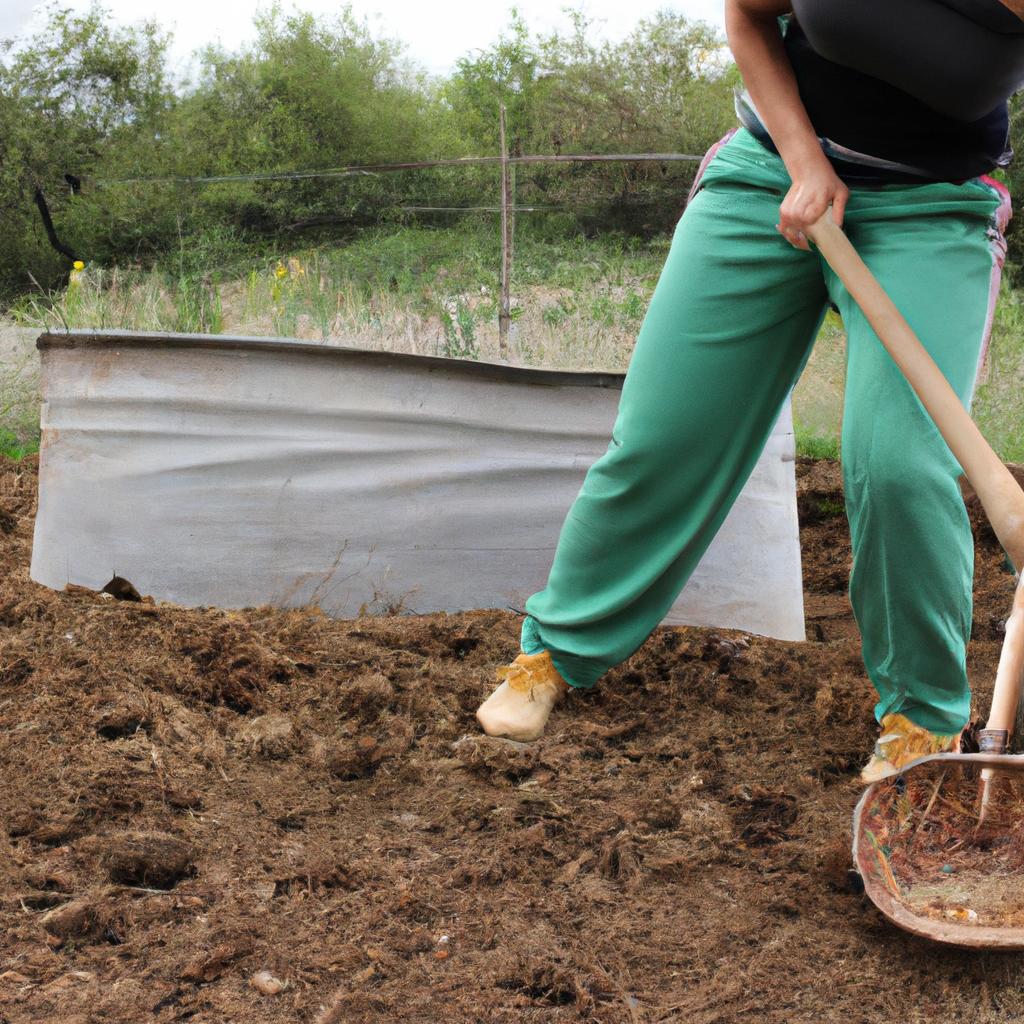In the realm of agricultural finance, securing funding for farmers with poor credit histories poses a significant challenge. This article aims to explore the various strategies and resources available to farmers in such circumstances.
By understanding the impact of poor credit on farm financing, identifying alternative financing options, and building a solid business plan, farmers can increase their chances of obtaining favorable terms and conditions for secured financing.
In addition to these steps, exploring government programs and grants, negotiating with lenders, and taking steps to improve creditworthiness are also important factors to consider.
By approaching the issue of securing funding for farmers with poor credit histories from a comprehensive perspective, farmers can navigate the challenges and increase their chances of obtaining the financial support they need.
Understanding the Impact of Poor Credit on Farm Financing
The impact of poor credit on farm financing necessitates a comprehensive understanding of the challenges faced by farmers with low credit scores. Farmers with poor credit often struggle to secure loans for their agricultural operations due to their perceived higher risk by lenders. Creditworthiness assessment plays a crucial role in determining whether farmers are eligible for loans and at what interest rates.
Additionally, loan collateral is an important consideration for lenders when assessing the risk associated with lending to farmers with poor credit. Credit counseling services can assist farmers in improving their credit scores and financial management skills, potentially increasing their chances of obtaining financing.
Alternative sources of funding such as peer-to-peer lending platforms and credit unions may also be more willing to provide loans to farmers with poor credit, offering them a sense of belonging within these supportive communities.
Identifying Alternative Financing Options for Farmers With Poor Credit
This discussion focuses on identifying alternative financing options for farmers with poor credit.
Three key points to be explored are microloans for credit-challenged farmers, crowdfunding as a funding solution, and grants specifically designed for farmers with poor credit.
These options provide potential avenues for accessing capital that may not be available through traditional lending institutions due to the challenges posed by poor credit histories.
Microloans for Credit-Challenged Farmers
One potential solution to address the financing needs of farmers with poor credit histories is through the provision of microloans.
Microloans for underserved farmers can provide them with access to much-needed capital for their agricultural activities. These loans are typically small in amount and have more flexible eligibility criteria compared to traditional loans.
In addition to providing financial assistance, microloans often come with community support for farmers through cooperative financing models and mentorship programs. These programs not only offer financial resources but also provide guidance and support to credit-challenged farmers, helping them improve their creditworthiness over time.
Alternative credit assessment methods are also utilized in determining loan eligibility, taking into account factors beyond just credit scores.
Crowdfunding as Funding Solution
Crowdfunding has emerged as an alternative funding solution that allows individuals to contribute small amounts of money towards agricultural projects, providing a potential avenue for financial support for underserved farmers. This form of community-driven financing leverages online platforms and social media outreach to connect farmers with potential investors who are interested in supporting sustainable farming practices.
Some key features of crowdfunding for agriculture include:
- Community Support: Crowdfunding campaigns rely on the collective contributions of individuals who have a shared interest in supporting local farmers and promoting food security.
- Online Platforms: Dedicated crowdfunding platforms provide a convenient and accessible way for both farmers and investors to connect and engage in mutually beneficial partnerships.
- Social Media Outreach: Farmers can leverage the power of social media platforms to raise awareness about their projects, attract potential supporters, and build a strong network within the agricultural community.
- Local Partnerships: Collaborating with local organizations, such as farming cooperatives or agricultural extension services, can enhance the credibility and reach of crowdfunding campaigns by tapping into existing networks.
- Investor Networks: Crowdfunding offers opportunities for investors interested in socially responsible investments to support sustainable agriculture projects while diversifying their portfolios.
By harnessing these elements, crowdfunding provides an inclusive funding mechanism that fosters belonging within the farming community while empowering underserved farmers to access much-needed financial resources.
References
Please note that this response is based on general knowledge and should not be considered as scholarly or academic research.
Grants for Farmers With Poor Credit
Grants provided to individuals in the agricultural sector with less favorable credit backgrounds can serve as a potential source of financial support, enabling them to overcome traditional barriers and access the necessary resources for their farming operations. These grants are specifically designed to assist small-scale farmers who may not have access to conventional financing options due to their poor credit histories.
In addition to grants, there are also loan forgiveness programs available that can alleviate the burden of existing debts for these farmers. Financial literacy training programs are another resource that can help individuals better manage their finances and improve their creditworthiness.
Moreover, cooperative farming initiatives provide opportunities for collaboration and shared resources among farmers, reducing individual financial burdens. Lastly, community-based funding models such as crowdfunding platforms allow farmers to receive support from a wider network of people who share an interest in sustainable agriculture and rural development.
Building a Solid Business Plan to Secure Financing
To secure financing, farmers with poor credit histories should prioritize the development of a comprehensive business plan that highlights their long-term goals, financial projections, and risk management strategies. This is crucial as it demonstrates to potential lenders or investors that the farmer has carefully considered their operations and is committed to achieving success.
The following strategies can be incorporated into the business plan to enhance its effectiveness:
- Developing Strategies: Clearly outline how the farm will achieve its goals and overcome challenges by including specific action plans and timelines.
- Financial Projections: Provide detailed estimates of income, expenses, cash flow projections, and profitability forecasts for at least three years.
- Risk Assessment: Identify potential risks such as market fluctuations, weather conditions, or regulatory changes and propose mitigation strategies.
- Market Analysis and Competitive Advantage: Conduct a thorough analysis of the target market, competitors’ strengths and weaknesses, and highlight how the farm’s products or services offer a unique advantage.
Exploring Government Programs and Grants for Farmers With Poor Credit
Government programs and grants can provide valuable financial resources and support for individuals in the agricultural sector who may face challenges related to their credit history.
For farmers with poor credit, accessing traditional loans or financing options can be difficult. However, government assistance programs offer alternative solutions that can help overcome these obstacles.
One option is loan forgiveness, where a portion or all of the outstanding debt may be forgiven under certain conditions.
Credit counseling is another avenue that provides guidance on managing and improving credit scores.
Additionally, collateral options allow farmers to secure loans by pledging assets as collateral.
Lastly, mentorship programs connect experienced farmers with those facing credit challenges, providing guidance and support in navigating the financial landscape.
These government initiatives aim to foster belonging within the agricultural community by offering accessible financial resources and expert advice for individuals facing credit difficulties.
Negotiating With Lenders for Favorable Terms and Conditions
When negotiating with lenders, it is important to carefully evaluate and discuss the terms and conditions of the loan agreement to ensure a favorable outcome for all parties involved.
To navigate this process successfully, farmers with poor credit histories can employ various negotiation strategies. These strategies can help them secure more favorable collateral requirements, interest rates negotiations, and loan repayment terms.
Farmers should consider seeking credit counseling options before entering negotiations to understand their financial position better and identify potential areas for improvement.
Additionally, they should be prepared to provide any necessary documentation or additional collateral that may strengthen their case during negotiations.
Taking Steps to Improve Credit and Increase Financing Opportunities
Taking steps to improve credit and increase financing opportunities involves engaging in financial management practices that can enhance creditworthiness and expand access to funding for individuals.
One way individuals can work towards improving their creditworthiness is by seeking credit counseling services. These services provide guidance on managing debt, creating a budget, and developing good financial habits.
Another option is utilizing credit repair services, which help identify errors on credit reports and dispute them with the appropriate agencies.
Additionally, exploring collateral options can be beneficial for those with poor credit histories. Collateral provides lenders with security in case of default, increasing the chances of approval for financing.
Lastly, considering non-traditional lenders can be advantageous as they may have more flexible lending criteria compared to traditional banks.
Conclusion
In conclusion, securing financing for farmers with poor credit histories requires exploring many alternative options and resources. For a comprehensive look at strategies farmers can use to secure financing despite poor credit, refer to this helpful guide: Securing Financing for Farmers with Poor Credit Histories. With perseverance and the right approach, agricultural producers facing financial challenges can find a path forward.




